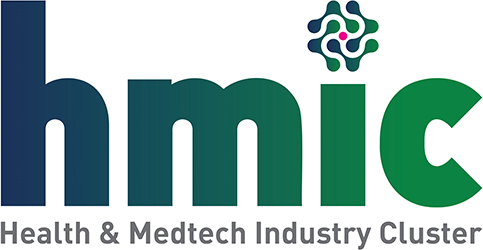MAKING A DIFFERENCE BY IMPROVING HEALTHCARE OUTCOMES
a Case Study about Associate Professor James Welsh by Kate O’Mara
Solving a problem that no one has ever solved before is a key motivator for Dr James Welsh, Head of the Electrical, Computer Systems and Medical Engineering Discipline, convenor of the University of Newcastle’s Medical Engineering undergraduate program and leading researcher at the institution.
In 1997, Dr Welsh made the switch to academia from engineering in an industry setting and hasn’t looked back. The engineer, who specialises in building mathematical models of dynamic systems, says academia’s mix of projects and theoretical work is busy, but stimulating and rewarding.
“In academia, you determine your own pathway with your research. Every day is different. It’s very fulfilling to come to work and do something you’re passionate about,” Dr Welsh said.
The scope of Dr Welsh’s projects in the biomedical field are, indeed, varied, thanks to his widely applicable engineering expertise.
One project, for instance, is helping improve the way scientists understand mice’s vestibular systems. From investigating the mouse’s brain, running benchtop tests and developing algorithms, Dr Welsh’s research interests focus on using mathematical models to test scientific hypotheses, and may, one day, have implications in human healthcare.
Another project is addressing improvement in the mechanisms used in therapeutic and cosmetic limb lengthening. In collaboration with a medical researcher-entrepreneur and orthopaedic surgeon in Singapore, Dr Welsh is developing an intelligent implant system solution that features embedded control, a miniaturised motor, and a bi-directional drive mechanism.
“The idea is to get a limb-lengthening device inside the leg without making open wounds so the patient can be mobile and return home soon after the procedure,” Dr Welsh said.
“I’m working with my Singapore colleagues and a University of Newcastle PhD student on this project. We’re creating new to the world technology that will make a difference in people’s lives. It’s very rewarding.”
Dr Welsh likes to inspire the next generation of medical engineers by imparting knowledge and nurturing curiosity.
“To see someone come in to an undergraduate degree course not knowing much about the medical engineering field and leaving very knowledgeable after four years is very pleasing – it’s a highlight of my career.
“Sharing insights from my research and the real-world projects I’m applying my engineering skills to help motivate young people to make a difference by improving healthcare outcomes – and that’s very satisfying,” Dr Welsh said.
Dr Welsh is a prime example of the rich pool of talent we boast in the Hunter region: highly regarded subject-matter-experts who see value in collaborating to build the region’s health and medtech sector. Dr Welsh sits on the Executive Advisory panel of the region’s Health & Medtech Industry Cluster (HMIC) which is helping build awareness of the Hunter Central Coast as a strong contributor to Australia’s medtech capability. HMIC supports growth of medtech and manufacturing in the region by facilitating collaboration across industry, government, research and education so, among other outcomes, medical engineering graduates can build their careers here in the region.
For more information visit www.hmic.org.au or contact HMIC Director, Kate O’Mara on 0412 303 744.


